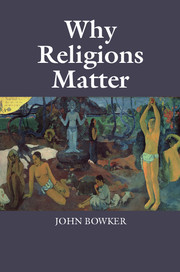Book contents
1 - Introduction
Published online by Cambridge University Press: 05 April 2015
Summary
When Marx and Engels surveyed ‘the condition of the working class in England’ (to quote the title of Engels’s own work), their anger was fierce. In Das Kapital, Marx made repeated use of reports and statistics describing those conditions. “We misconceive the nature of the communist appeal”, wrote Lane Lancaster (p.165), “unless we understand that the moral impetus of that appeal came from the bitter indignation that Marx felt when he contemplated the injustice implied in these figures.”
Both Marx and Engels recognised that religious people and religious institutions did much to alleviate the suffering involved in those conditions, but from that it follows (or so it seemed to them) that if the conditions are removed, so too is the need for religion. On that basis Marx arrived at his famous conclusion:
Religion is the sigh of the oppressed creature, the heart of a heartless world, and the soul of soulless conditions. It is the opiate of the people. The abolition of religion as the illusory happiness of the people is the demand for their real happiness. To call on them to give up their illusions about their condition is to call on them to give up the condition that requires illusions.
The conditions in many parts of the world have changed, but religion has not disappeared. Can secularisation succeed where Marx and Mao failed? The problem in answering that question is that ‘secularisation’ is a pantechnicon word into which many different and sometimes contradictory meanings have been packed. The claim to secularism is made not just by militant atheists but also by some Christian theologians. In fact, secularisation is not a ‘thing’, an ideology, as some have suggested, “going about like a roaring lion” seeking what religions it can devour. Secularisation is a word of many meanings reflecting, amongst much else, massive changes in religious practices and beliefs: they include a decline in some, but they also include a growth and an increase in others. ‘Secularisation’ is certainly not a simple process leading to the abolition of religion.
Information
- Type
- Chapter
- Information
- Why Religions Matter , pp. 1 - 8Publisher: Cambridge University PressPrint publication year: 2015
